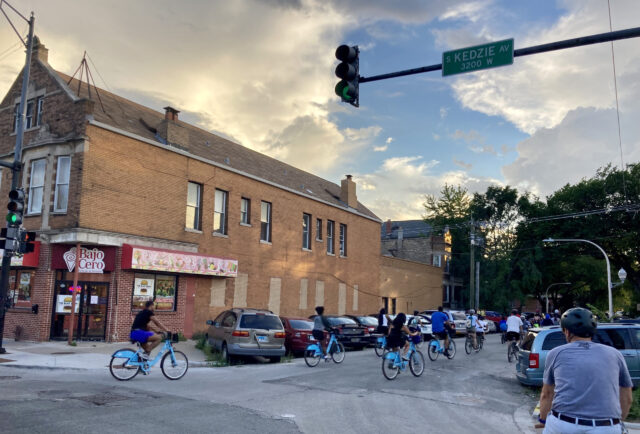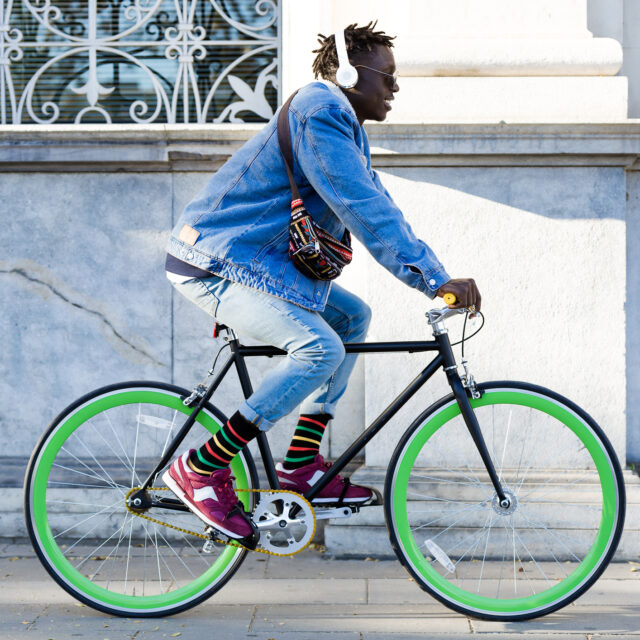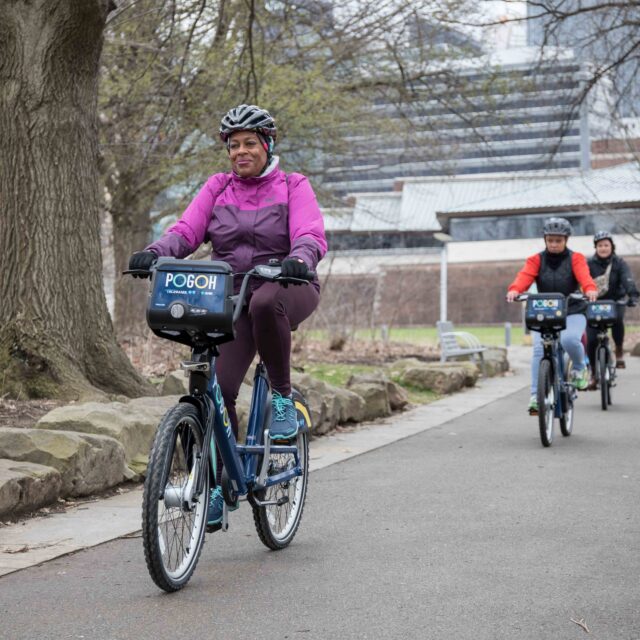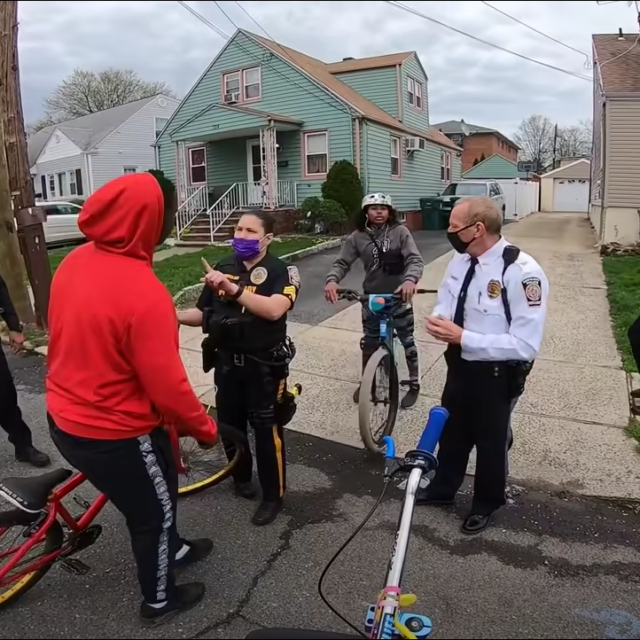The Importance of Community Mobility Rituals
by Kiran Herbert, Communications Manager
August 12, 2022
Chicago-based Equiticity is working to socialize BIPOC around the act of mobility — increasing a sense of safety, ownership, and autonomy in the process.

“Equiticity is a racial equity movement,” says Olatunji Oboi Reed, president and CEO of Equiticity. “We’re operationalizing racial equity by harnessing our collective power through research, advocacy, programs, and Community Mobility Rituals to improve the lives of Black, Brown, and Indigenous [BIPOC] people in our society.”
While the organization operates nationally, the vast majority of Equiticity’s work takes place in the North Lawndale neighborhood on the West Side of Chicago. Transportation and the increased movement of people of color are its major focus — that work includes combatting racially biased policing and transportation policies alongside supporting shared micromobility and safe mobility networks. In line with this mission, Equiticity is developing The Go Hub in North Lawndale, a community mobility center that integrates software (Community Mobility Rituals, training, and trauma-informed programming) and hardware (mobility devices and transit infrastructure) at a physical building.
“We recognize that mobility and trauma are inextricably linked,” says Reed. “The majority of violence that [BIPOC] experience is during the act of mobility — it’s when we’re walking, biking, taking transit or driving, so we can’t think about these two things as separate and only do the work to grow our mobility or only do the work to reduce violence. Our work is designed to address both inequities.”
The Go Hub has been envisioned as a space where residents can feel comfortable and safe to explore how they “grow mobility” in the face of violence and trauma. For Equiticity, that means getting people to consider modes of travel outside of driving, which can oftentimes feel like the most secure option for Black and Brown families. The hub maintains a community council composed of seven capacity-building organizations, and they help inform the organization’s advocacy and the Community Mobility Rituals. These currently include five different types of rituals: a Sunday morning walk series and a Friday night bike ride series, as well as a monthly public transit excursion, group scooter roll, and an open streets festival.
In June, Equiticity received a BBSP mini-grant to support the scooter roll, held in partnership with Superpedestrian, and the ride series, held in partnership with Divvy, Chicago’s bike share system. Scooters are still relatively new in Chicago and the monthly roll is designed to increase familiarity with the mode in a safe setting, complete with scooters to ride and a representative from Superpedestrian on the ground that’s able to answer questions about the devices and LINK-Up, the company’s low-income program.
For the group bike rides, Divvy bikes are made available free of charge and participants are likewise able to learn about how the system works and Divvy for Everyone (D4E), its low-income program. The rides, which have been ongoing since the beginning of summer, each have a different theme, such as “Musicality,” complete with a drum line and a local rapper at different stops along the route, or “Art,” where stops included local art installations, murals, and graffiti.
Although available Superpedestrian and Divvy devices are capped at 16 per ride, Equiticity does partner with local community bike shops and community-based organizations to provide additional bikes (anyone is also welcome to bring their own). Other ride partners include Boxing Out Negativity, an organization working to empower at-risk youth, the Firehouse Community Arts Center, which uses art and faith to interrupt the cycle of violence, and UCAN, which strives to build strong youth and families through compassionate healing, education, and empowerment.
The different themes and partners help socialize participants around the act of mobility and increase a sense of safety, ownership, and autonomy. Working with local community-based organizations not only helps establish trust with residents, but it builds a network and cultivates a sense of pride and solidarity in the neighborhood. North Lawndale is a predominantly Black and low-to-moderate income area and although its historically been underserved, there’s currently a lot of work being done to replace vacant lots with gardens or repurpose shipping containers into local resources, like a museum or bike shop.
“The neighborhood has severe transportation inequity,” says Reed. “But the neighborhood also has a lot of assets.”
The Go Hub is located a quarter block from a transit center and along a strong bus route, and Equiticity recognizes the importance of having access to transit alongside good sidewalks, bike lanes, and lighting.
“If we want people to ride bikes, we need barrier-protected bike lanes; if we want people to use transit, there needs to be sufficient lighting at night,” says Reed. “It’s all integrated.”
Equiticity is currently fundraising to renovate The Go Hub’s physical building. The Community Mobility Rituals are a way to activate the space before it launches in summer 2023. Also under The Go Hub umbrella are BikeForce, an e-bike technologies workforce development program, and eventually, the Freedom & Culture Bicycle Cooperative, a bike manufacturing worker coop. Equiticity would also like to house an e-bike library in the large parking lot adjacent to the site, although more funding is needed to bring that dream to life.
“Long-term, we want to do several things,” says Reed, speaking to the intent behind the Community Mobility Rituals. “Naturally, we want to create a stronger connection between people in North Lawndale and The Go Hub. We also want to increase mobility, improve health, create jobs, and reduce violence.”
The Better Bike Share Partnership is funded by The JPB Foundation as a collaboration between the City of Philadelphia, the National Association of City Transportation Officials (NACTO) and the PeopleForBikes Foundation to build equitable and replicable bike share systems. Follow us on Facebook, Twitter and Instagram or sign up for our weekly newsletter. Got a question or a story idea? Email kiran@peopleforbikes.org.



